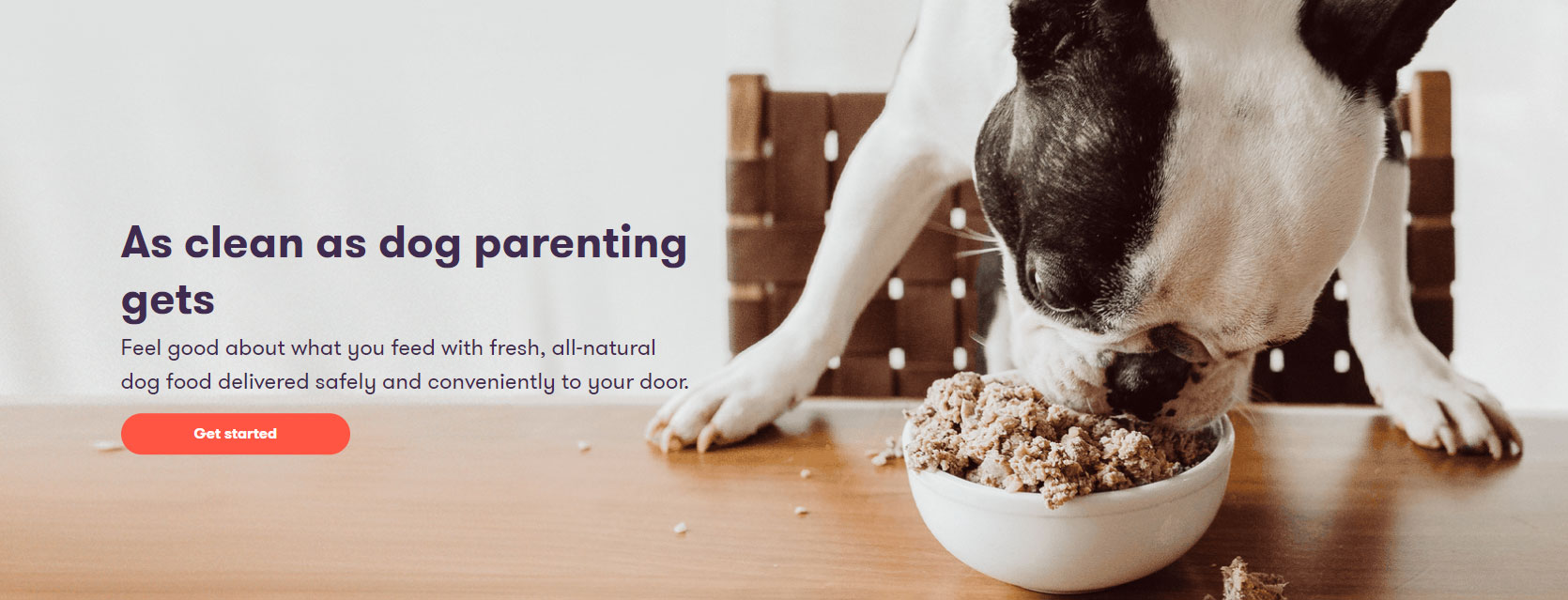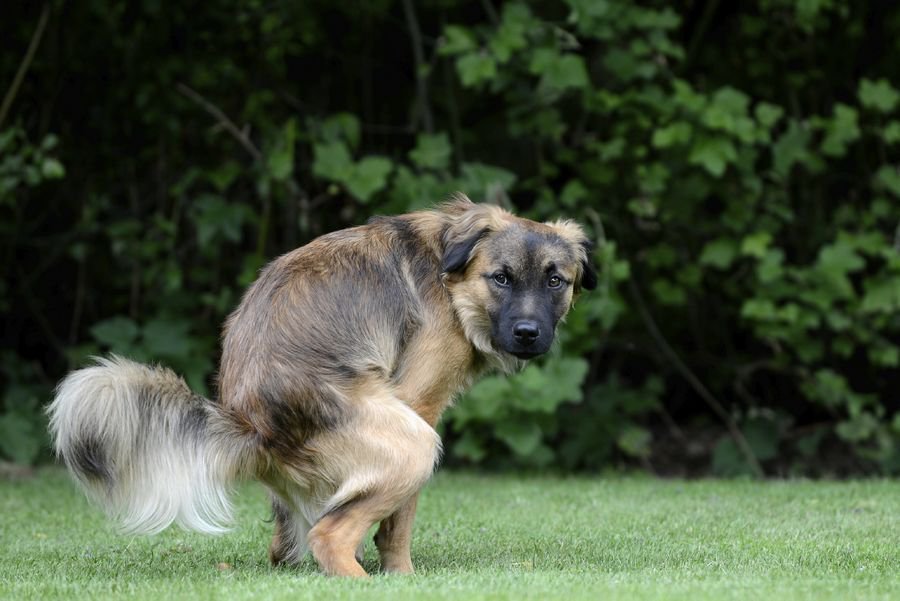Diarrhea in dogs
Diarrhea is a common problem in dogs and can be benign or a sign of a more serious disease.
It is therefore important to know how to identify its causes and to react correctly to prevent the situation from getting out of hand. Indeed, a simple diarrhea can have serious consequences on the health of your four-legged friend, especially when it is the symptom of an illness or appears in a weakened animal.
What is diarrhea in dogs?
Diarrhea in dogs is an increase in the production of stool with an abnormal consistency, i.e. soft or liquid. The dog may also pass small amounts of stool frequently or regularly attempt to defecate without success.
Diarrhea can be the result of digestive disorders of varying severity, but it can also be the result of systemic diseases that cause the dog's organs to malfunction. The severity of diarrhea depends on its origin, but also on the general state of the animal and its condition.
Thus, a diarrhea caused by a benign disorder (expired food, food intolerance) can endanger the life of a young puppy or a sick or fragile dog.

Internal parasites
Among the many causes of dog diarrhea, internal parasites are among the most common. If your dog has not been dewormed for more than six months, spends time outdoors and tends to chew or eat anything, worm infestation can be legitimately suspected.
In this case, the dog may sometimes show weight loss, vomiting and coughing, in addition to hemorrhagic or non-hemorrhagic diarrhea. Internal parasites are usually well tolerated by dogs, but they can also transmit incurable diseases, colonize the eyes, lungs or heart of your pet and cause its death.
To prevent this type of serious complication, remember to deworm your dog once or twice a year if he lives indoors and 2 or 3 times a year if he spends a lot of time outdoors, by scrupulously respecting the doses prescribed by your vet. If the infestation is already well established, visit your veterinarian so that he can set up an appropriate antiparasitic treatment and take care of the lesions caused by the parasites.
Poisoning
Dogs are often careless and tend to swallow or chew anything, which makes them particularly vulnerable to poisoning. In addition, many owners are misinformed about toxic products for dogs and poison their pets themselves by giving them - with good intentions - chocolate, grapes, aspirin or paracetamol, to name only the most common poisons in French households.
Beware, although chocolate and grapes may seem harmless, note that they are not harmful to our faithful companions, but they are indeed toxic and can cause their death in small quantities. Your dog is not safe from a malicious act either, especially if his behavior (running away, barking, etc.) has made him some enemies in your neighborhood.
If your dog presents a sudden diarrhea, possibly accompanied by vomiting, nervous signs, mobility problems, depression, anorexia, uncleanliness, tremors or convulsions, the possibility of poison must be considered. If you have seen your pet nibbling on a plant, human food or household product (detergent, soap, solvent, etc.) of unknown potential toxicity and diarrhea occurs, contact an animal poison control center.
The center will inform you of the dangers of the ingested product and the steps to take to help your pet. If all you see is sudden diarrhea, with or without other symptoms, and you can't figure out what your dog might have swallowed that is not edible, visit your veterinarian instead.
Note: Symptoms of poisoning can occur 2 to 4 days after ingesting a poison, especially with rat poison (Rat poison).
Bacterial or viral infections
Bacterial infections can be caused by ingesting food that has expired, been left out in the open too long or served in a bowl that is not cleaned regularly. It can also be caused by pancreatic insufficiency, partial intestinal obstruction or digestive motility disorders such as small intestinal bacterial overgrowth syndrome.
In such cases, diarrhea is often chronic and may be accompanied by weight loss, vomiting, abdominal pain or eating disorders. Diarrhea can also be caused by viral infections, including the common and dangerous coronavirus.
Parvovirus, Rotavirus, Torovirus, Norovirus and distemper are also common causes of diarrhea and can have serious or even fatal consequences if not managed promptly.
Food intolerances
Many dogs develop food intolerances or allergies that most often cause digestive problems, usually accompanied by skin disorders (allergic dermatitis). A sudden change of diet or a diet that is not adapted to your dog's nutritional needs or digestive system can result in diarrhea.
According to ANSES, two studies conducted respectively on 300 animals (cats and dogs) and 330 dogs point the finger at beef and dairy products, which would be among the most frequent sources of allergies. The agency also indicates that certain fish, poultry, egg and cereal proteins are also likely to cause intolerances and allergies.
The agency recommends that hypersensitive dogs should be fed hydrolyzed proteins to limit adverse reactions, and that the number of protein sources should be reduced.
Inflammatory and metabolic diseases
Chronic inflammatory bowel disease, organ disorders (liver, kidney) or metabolic dysfunctions can also cause diarrhea. A dog with chronic or acute diarrhea, with or without other symptoms, should therefore be visited by a veterinarian to detect any systemic abnormality or inflammation.
If early treatment of certain metabolic or inflammatory diseases offers a good prognosis, a late diagnosis may leave your pet with irreversible after-effects. This is particularly the case with liver diseases which cause, at an early stage, diarrhea, vomiting, depression, anorexia, weight loss, excessive thirst and increased urine production.

Consequences of diarrhea in dogs
The main consequence of diarrhea is dehydration, sometimes severe, which can be fatal in puppies or weakened animals. It can also cause gastric pain, spasms and irritation, a hardening of the abdomen, borborygmes (gurgling), apathy and anorexia.
The most worrying consequences are those that can potentially result from the disease causing the diarrhea. Indeed, it is important to keep in mind that diarrhea is only a symptom, so it is the source of the disorder (poisoning, liver disease, virus, etc.) that may have other effects on your dog's health.
Treatment of diarrhea in dogs
Acute diarrhea occurs suddenly and lasts less than four days. It is usually the result of an irritation of the digestive system due to an external cause. Most likely, your dog has swallowed something that he can't digest, or he has picked up a passing virus.
In this case, examine his stool: if there is blood, mucus, worms, foreign bodies or anything abnormal, take your dog to the veterinarian. If your dog's stools seem normal, except for their consistency and frequency, put him on a 24-hour diet to rest his digestive system.
During this period, encourage him to drink and, if necessary, add a little rice water to his bowl - provided it doesn't push him away - to help him have solid stools again. Keep your dog under surveillance: if other symptoms appear (depression, trembling, etc.) or if the diarrhea persists for more than 48 hours, take him to a veterinarian.
Warning: in case of poisoning, every minute counts! Try at all costs to rule out this cause before deciding to wait 24 hours. Furthermore, giving water to a dog that has swallowed certain poisons (especially detergents) may considerably worsen his case.
Finally, if your pet is very young or fragile and the diarrhea is severe, it can quickly become dehydrated. It is therefore more prudent to take him to a veterinarian who will put him, if necessary, on a drip to prevent his life from being threatened.
Treating chronic diarrhea in dogs
Chronic diarrhea usually lasts for more than two weeks and sometimes presents more discreet symptoms than acute diarrhea. However, it is the most serious form of diarrhea, as it often reflects a metabolic disorder or an advanced bacterial infection in the dog.
In the case of chronic diarrhea, the best solution is to have your pet examined by a veterinarian to determine the cause of the disorder and treat the source of the problem. Don't wait until symptoms worsen to have your pet treated: most illnesses have a better chance of recovery when diagnosed and managed early!
Depending on the condition behind the diarrhea, treatment can be as simple as a change in diet (liver failure), antibiotics (bacterial infections) or even surgery (liver cancer).
FAQ
What are the symptoms of diarrhea in dogs?
Diarrhea is the passing of loose or watery stools at an abnormal frequency and in exaggerated amounts. In large bowel diarrhea, the dog may also attempt to defecate regularly but may fail to do so or may pass only a small amount of soft or watery stool.
What causes dog diarrhea?
There are many potential causes of dog diarrhea: poisoning, viral and bacterial infections are common causes of acute diarrhea. Metabolic or inflammatory diseases, internal parasites and food intolerances are more likely to cause chronic diarrhea.
How to treat diarrhea in dogs?
In case of acute diarrhea without any trace of blood, mucus, worms or any abnormality in the stool, the best thing to do is to put the dog on a 24-hour diet and keep him under surveillance. In the case of chronic diarrhea, the treatment depends on the cause and the only solution is to take the animal to a veterinarian so that he can establish a diagnosis and set up the appropriate treatment.
What are the consequences of dog diarrhea?
Dog diarrhea causes gastric irritation, but above all dehydration which can be severe in puppies and weakened animals. The consequences to be feared are rather those caused by the possible disease that diarrhea can translate, which is why a dog with chronic diarrhea should absolutely be examined by a veterinarian.
Acute diarrhea in dogs is fortunately not serious in most cases, although the dehydration it causes can be fatal for puppies in the most severe cases. The risk of acute diarrhea can be prevented by taking a few simple hygienic measures (regular cleaning of bowls and toys) and by preventing your dog from chewing or eating anything.
In cases of chronic diarrhea, the only solution is to take your dog to a veterinarian to investigate the cause of the problem. Still have questions about acute or chronic dog diarrhea? Ask us or share your experience in the comments of this article!

